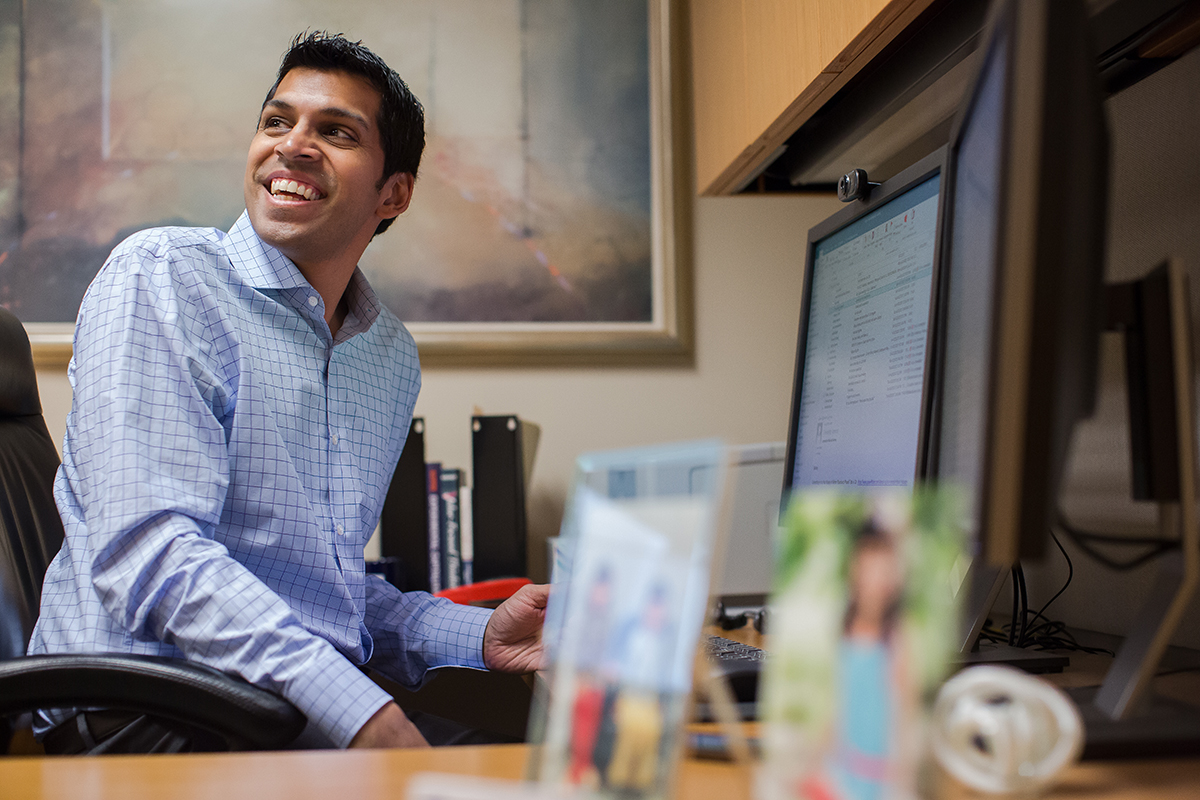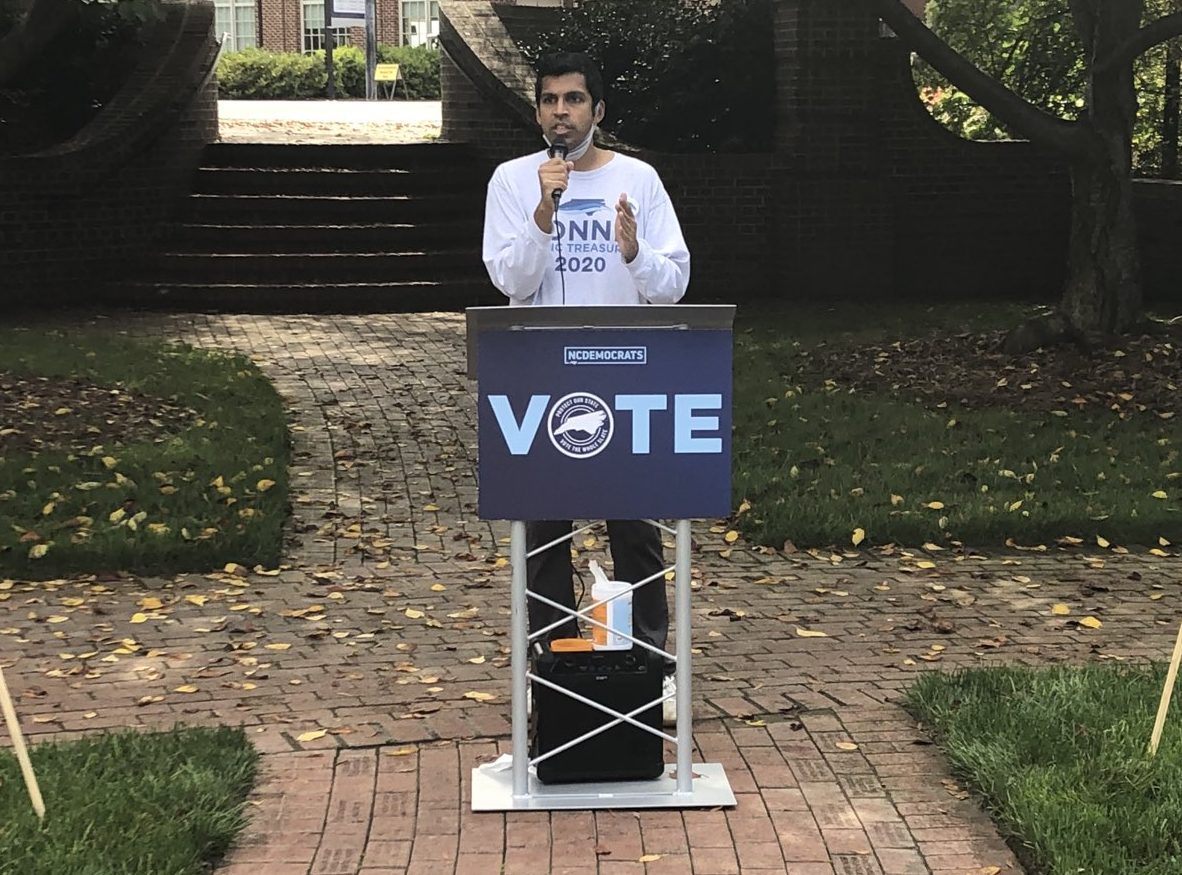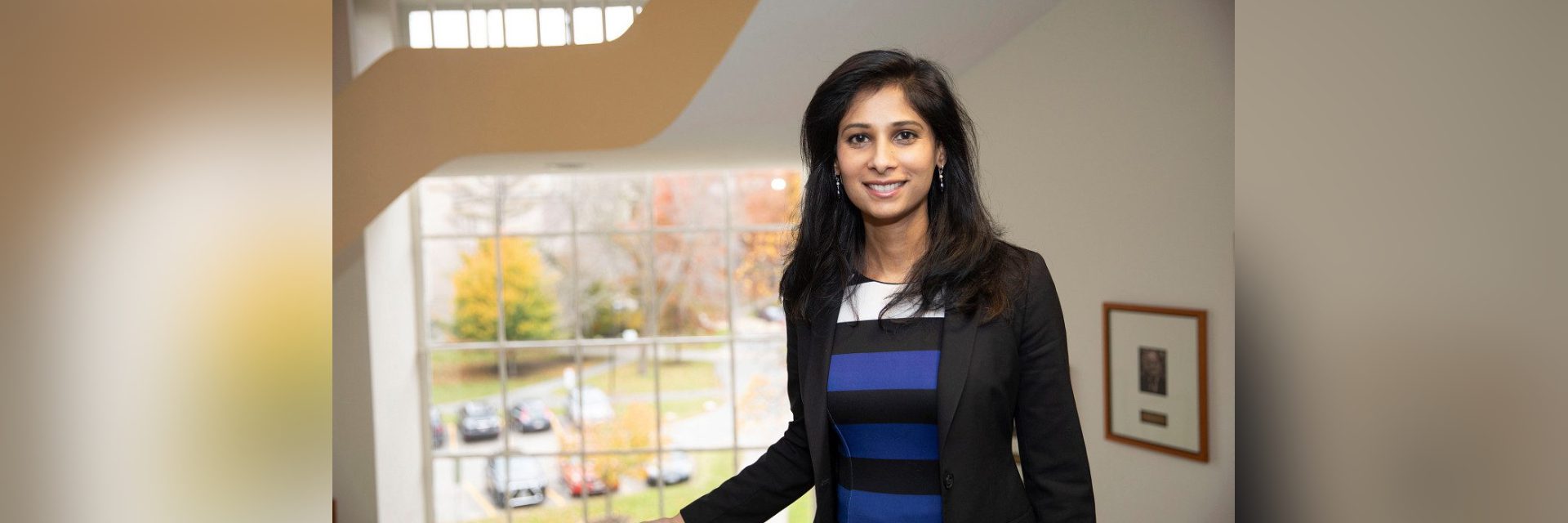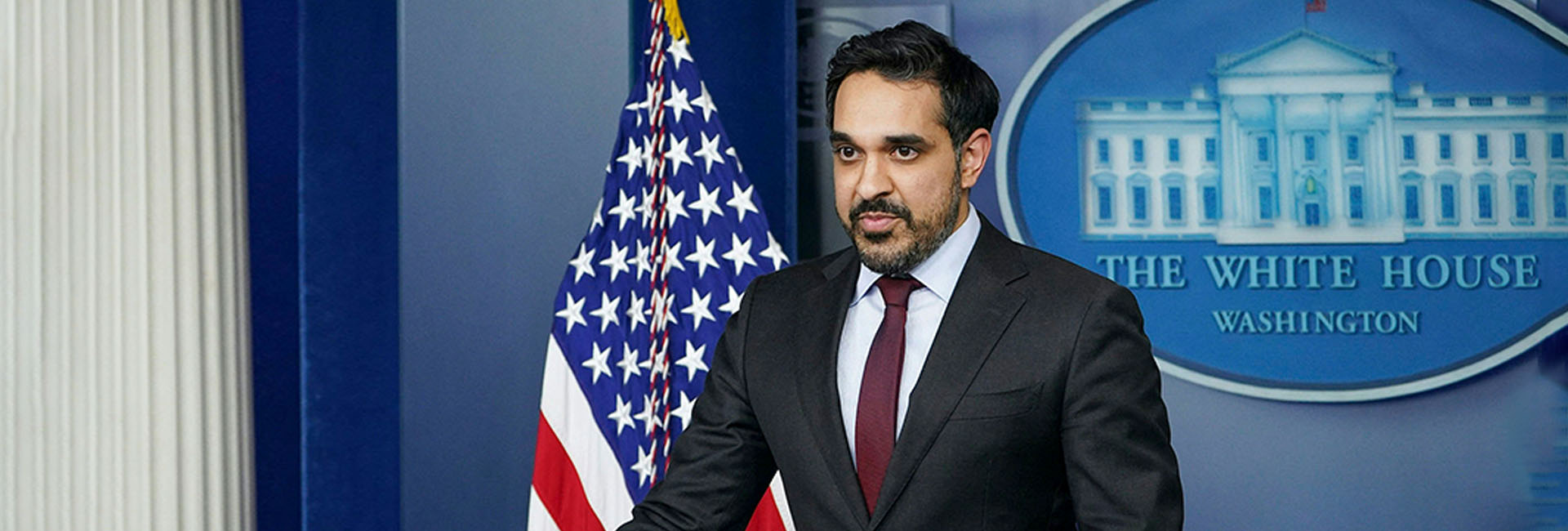(December 23, 2023) The landscape of global economics is ever-evolving, and individuals like Dr. Aaron “Ronnie” Chatterji, an Indian American, are at the forefront of shaping its direction. Dr. Chatterji, with his rich background in economics, has played a crucial role in the Obama Administration as a senior economist. His expertise has also been sought after by President Joe Biden, particularly in navigating the challenges of the global microchips shortage.

Dr. Aaron “Ronnie” Chatterji at The Fuqua School of Business at Duke University in Durham, NC
Under the Biden administration, Dr. Chatterji has overseen several key initiatives, notably the groundbreaking $50 billion investment in the semiconductor industry through the CHIPS and Science Act. He is set to resume his role as a business professor at Duke University. Renowned as a Global Indian, Dr. Chatterji has been instrumental in advancing the United States’ supply chains, enhancing national security, and generating employment nationwide. His leadership has led to innovative methods of understanding entrepreneurship, developing creative policy ideas to leverage technology for a brighter global future, and documenting the rise of CEO activists and their impact on governance.
Aiming for the stars
A self-proclaimed ‘nerd’, Dr. Chatterji was an enthusiastic kid who loved numbers. Growing up as an immigrant, the economist always dreamt of making a career in the field of commerce. Talking about his growing up years in Upstate New York, the economist shared, “I didn’t really think much about how fortunate my parents were. They were both teachers working for the state, which meant they had good healthcare. Looking back, this played a big role in why I decided to enter the world of public office in North Carolina.”

After completing his school, the economist went on to earn a B.A. in Economics from Cornell University in 2000. Later, he pursued his Ph.D. from the University of California, which he received in 2006. His main area of research focussed on entrepreneurship, innovation, and corporate social responsibility. The results of his scholarly efforts have been featured in leading publications within the fields of strategic management, economics, finance, and organisational studies. The same year, Dr. Chatterji moved to North Carolina to teach at Duke’s business school, where he worked at the intersection of academia, policy, and business, investigating the most important forces shaping the economy and society.
With prior experience as a financial analyst at Goldman Sachs and a term membership with the Council on Foreign Relations, Chatterji’s accomplishments have garnered several accolades. Among these, he has received the Rising Star Award from the Aspen Institute, the Emerging Scholar Award presented by the Strategic Management Society, and the prestigious 2017 Kauffman Prize Medal for Exceptional Research in Entrepreneurship.
Right at the top
While he was enjoying his time teaching and grooming the next generation of economists, a turning point came when he was appointed as a senior economist on President Barack Obama’s Council of Economic Advisers, in 2010. The economist shifted to Washington, D.C. to work out of the White House, where his work concentrated on policies concerning entrepreneurship, innovation, infrastructure, and economic growth. It was around the same time that Dr. Chatterji held the role of Research Associate at the National Bureau of Economic Research and also that of a visiting Associate Professor at The Harvard Business School.
During his first tenure at the White House, the economist authored numerous op-ed articles in the New York Times and the Wall Street Journal, among them influential essays that introduced the notion of CEO activism in collaboration with co-author Michael Toffel. He composed extensively for both management and policy readerships, with a series of recent contributions to the Harvard Business Review and the Brookings Institution. He is also the author of the acclaimed book, Can Business Save the Earth? Innovating Our Way to Sustainability.

Dr. Chatterji with his family
Dr. Chatterji became the chief economist at the Commerce Department only a few months into Biden’s term and transitioned to the NEC (National Economic Council) the previous year, assuming the role of White House Coordinator for CHIPS (Creating Helpful Incentives to Produce Semiconductors) Implementation. He also oversaw the implementation of the Science Act, which aims to boost domestic research and manufacturing of semiconductors in the United States to give the country a competitive edge on the world stage. “I oversaw the tasks of the CHIPS Implementation Steering Council, collaborating closely with the National Security Council, the Office of Science and Technology Policy, the Department of Commerce, and the Steering Council itself to guarantee efficient interagency synchronisation,” the economist said.
The economist, who lives with his wife Neely and three children in Durham, now plans on spending a few years teaching at Duke University, while also working on a new book.
- Follow Dr. Aaron “Ronnie” Chatterji on LinkedIn



